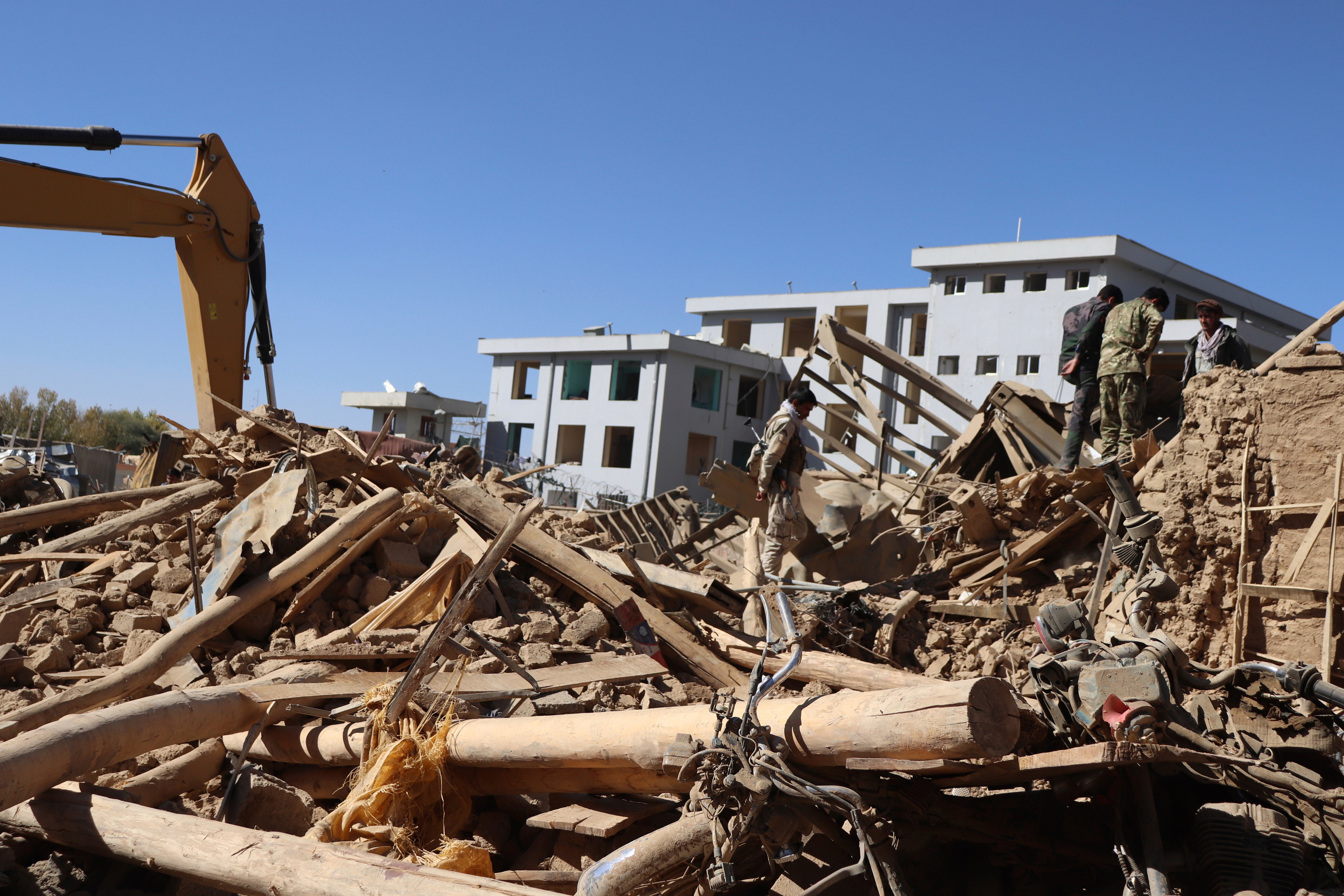US envoy warns new violence threatens Afghan peace process
The U.S. special envoy to Afghanistan is warning that “distressingly high” levels of violence threaten to derail ongoing peace talks between the Afghan government and the Taliban

Your support helps us to tell the story
From reproductive rights to climate change to Big Tech, The Independent is on the ground when the story is developing. Whether it's investigating the financials of Elon Musk's pro-Trump PAC or producing our latest documentary, 'The A Word', which shines a light on the American women fighting for reproductive rights, we know how important it is to parse out the facts from the messaging.
At such a critical moment in US history, we need reporters on the ground. Your donation allows us to keep sending journalists to speak to both sides of the story.
The Independent is trusted by Americans across the entire political spectrum. And unlike many other quality news outlets, we choose not to lock Americans out of our reporting and analysis with paywalls. We believe quality journalism should be available to everyone, paid for by those who can afford it.
Your support makes all the difference.The U.S. special envoy to Afghanistan warned Monday that “distressingly high” levels of violence threaten to derail ongoing peace talks between the Afghan government and the Taliban
Zalmay Khalilzad s comments come as renewed fighting for days has plagued Afghanistan's southern Helmand province, a longtime Taliban stronghold. The Taliban this Friday agreed to halt its attacks on condition of the U.S. stopping its airstrikes in the area.
But then came a suicide car bombing Sunday that killed at least 13 people and wounded around 120 others in Afghanistan's western Ghor province. Though no one claimed responsibility for the bombing, suspicion immediately fell on the Taliban.
“Violence has stalked Afghans for far too long. It has robbed far too many Afghans of their loved ones,” Khalilzad wrote on Twitter. “The tragedy in Ghor today is the most recent example.”
He added: “The belief that says violence must escalate to win concessions at the negotiating table is very risky. Such an approach can undermine the peace process and repeats past miscalculations by Afghan leaders.”
The Taliban offered no immediate reaction to Khalilzad's tweets. However, it issued a statement Sunday over the U.S. airstrikes targeting Helmand province. The Taliban warned that “all responsibility and consequences from continuation of such actions shall fall squarely on the shoulders of the American side.”
Omer Zwak, a spokesman for Helmand's provincial governor, said Monday there were still gun battles in a few areas of the province's Nad Ali and Nawa districts. The Afghan air force separately conducted limited airstrikes to support Afghan forces trying to retake Taliban-held areas, Zwak said.
The peace talks in Qatar between the Taliban and Afghan government negotiators began in September, but after a ceremonious start they became bogged down, mainly in the minutiae of Islamic jurisprudence. This current round of negotiations come after a deal in February between the U.S. and the Taliban that seeks to end America's longest war.
Despite the challenges, the ongoing talks represent the most-serious effort yet at ending decades of war in Afghanistan that followed the 2001 U.S.-led invasion that toppled its Taliban government, which then was hosting al-Qaida leader Osama bin Laden who planned the Sept. 11 attacks.